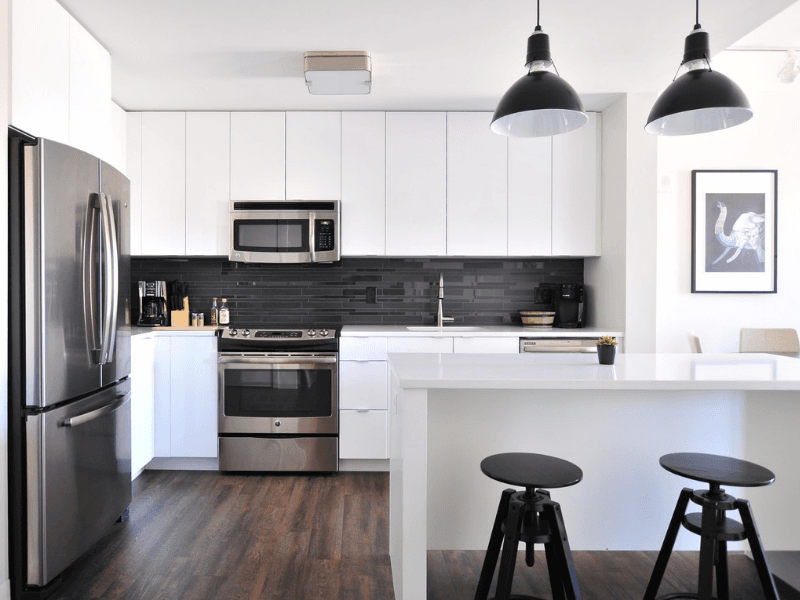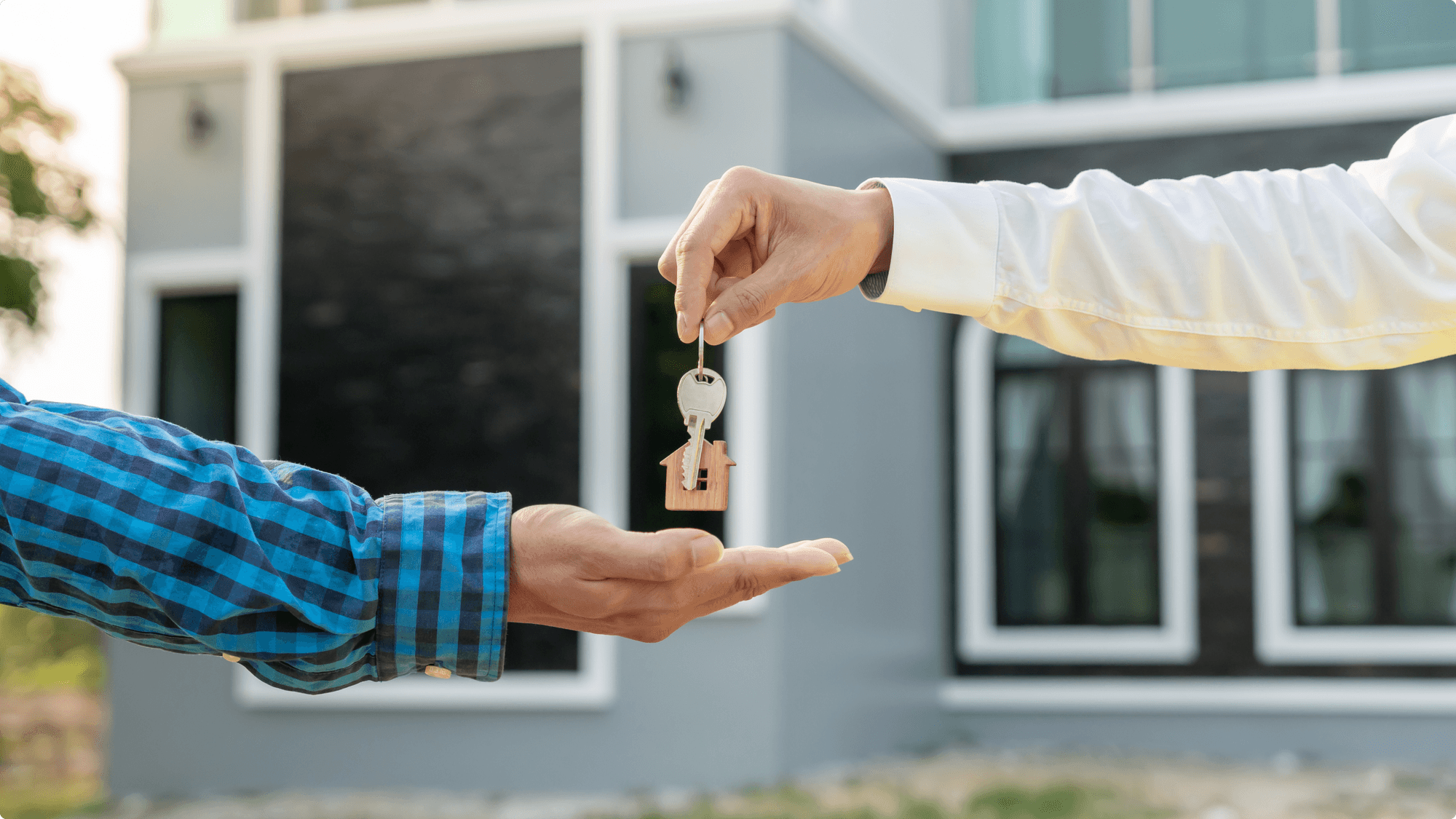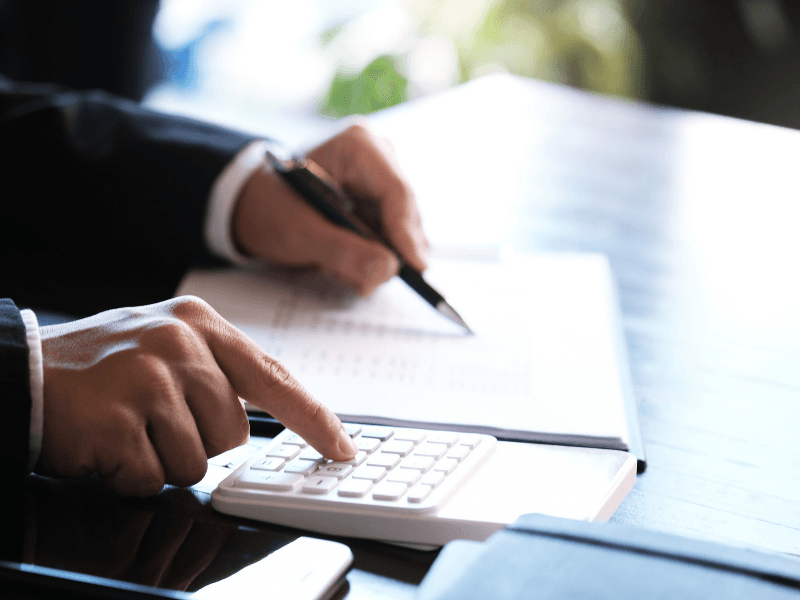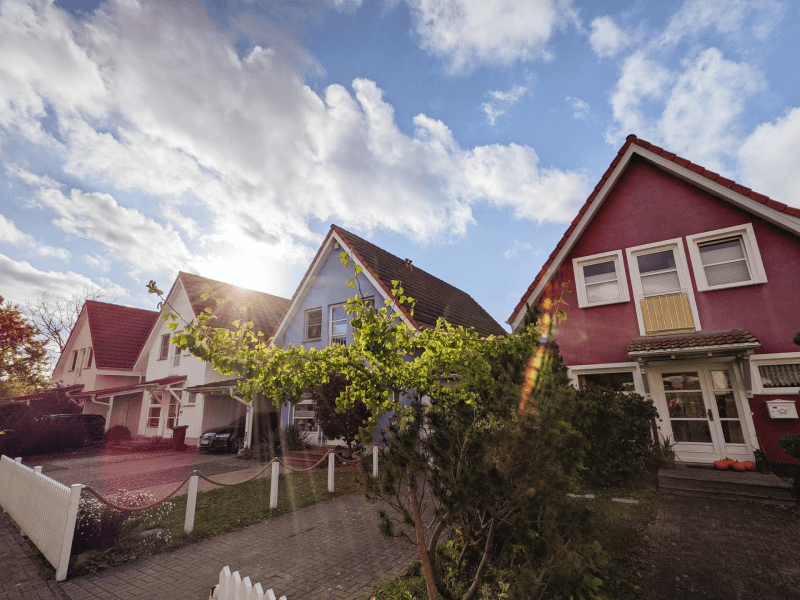9 Tips for Buying Your First Rental Property

There’s no doubt that owning rental properties is one of the most effective ways to grow your net worth and build wealth. Rental properties are a source of ongoing income (as long as they’re rented out), in addition to the property value that should increase over time.
Buying your first rental property can be an intimidating and stressful experience. It’s a major investment, and you want to get it right.
In this article, we’ll look at the most important details you need to consider, so you can have a positive experience and start building your own rental empire.
Getting a Mortgage for a Rental Property
The process of getting a mortgage for a rental property is a little different than getting a mortgage for a primary residence. Rental properties present more risk for the lender, so they have a few policies in place to protect themselves. Of course, the specific details can vary from one lender to the next, but these are general principles that typically apply to loans for rental properties.
- Larger down payment. Many lenders require at least a 20% down payment when you’re purchasing a rental property.
- Higher interest rates. Generally, interest rates on investment properties tend to be 0.50% - 0.75% higher than the rates on owner-occupied properties.
- Lenders may require you to hold a reserve for up to six months of mortgage payments. This won’t always be the case, but the lender may want to insure that reserves are available if the unit goes unrented or the tenant doesn’t pay the rent.
You can use our mortgage calculator to see how much the down payment and interest rate will impact your monthly payments. Check with lenders to see their current rates for rental properties, or add 0.75% to standard mortgage rates as an estimate.
In addition to traditional bank financing, some investors explore alternative lending options such as private mortgages. Private lenders can offer more flexible terms and faster approvals, making them an attractive option for those who may not meet conventional lending requirements. For those interested in this approach, investing in private mortgages can also be a profitable way to generate passive income while helping other investors finance rental properties.
Tips for Buying Your First Rental Property
When you’re ready to move forward, here are some helpful tips to guide you in the right direction.
1. Pay Down Your Personal Debt
It’s a good idea to eliminate personal debt before shopping for your first rental property. If you have student loans, auto loans, credit card debt, or personal loans, prioritize paying off this debt before moving forward with an investment property.
With these debts paid, you’ll have fewer monthly payments and more cash on hand in case it’s needed for your property. Plus, you’ll be less likely to miss payments or default on debt if something goes wrong.
2. Save for a Down payment
Since most lenders require at least 20% down for an investment property, you’ll need to have a significant amount of money saved before becoming a landlord. Depending on the property values in the area where you live, this could be a very large amount of money.
If the down payment requirements present a huge barrier, there are a few alternatives. First, you could buy a house as your primary residence (and get the best interest rate), live in it for a few years, then move out of the house and rent it.
Another option is to refinance the mortgage on your primary residence and take extra cash that will be used for the down payment on the rental property. If you go this route, be sure to consider the negative impact of having higher debt and less equity in your primary residence. You can use our refinance calculator to see how it would impact your monthly payments.
3. Get Pre-Approved for the Mortgage
Before you dedicate a lot of time and effort to find the right rental property, speak to a mortgage lender and get pre-approved. That way you’ll know what you can afford and you can narrow down your search.
Since investment property mortgages can be considerably different than the mortgage for a primary residence, it makes sense to get all of the details upfront.
4. Choose the Right Location
Location is critical for any real estate purchase, whether it’s a primary residence or a rental property. Take the time to research desirable areas where there are schools, retail, restaurants, nightlife etc.
You certainly don’t want to struggle to rent out a property because you overlooked details about the location or neighborhood.
5. Budget for Maintenance Costs
This is one area where some new real estate investors can get caught off guard. In some cases you hear from people who spent every last dime they had to acquire the rental property, and neglected to keep a savings fund for maintenance and repair.
When you’re running the numbers, be sure to account for the basic ongoing maintenance of the house. The general rule of thumb is to budget 1% of the house’s value for annual maintenance. So if the house is worth $200,000, you should expect to spend about $2,000 per year in routine maintenance.
6. Plan for the Unexpected
In addition to the routine maintenance costs, you should also be prepared in case something unexpected happens. This could include storm damage, a broken furnace, or other problems not covered by insurance. These costs may be significant, so it’s best to have an emergency fund that’s capable of covering large unexpected costs.
7. Calculate Your Expected ROI
If you want to have success with your rental properties, you’ll need to have a solid understanding of the numbers and be able to calculate your return on investment (ROI).
Follow these steps:
- Estimate your annual rental income.
- Subtract your estimated annual expenses (mortgage payments, taxes, insurance premiums, maintence costs, etc).
- The difference between your rental income and expenses is your annual cash flow.
- Divide your annual cash flow by the amount of money needed to invest up front (downpayment, closing costs, any repairs needed immediately).
Let’s look at an example. If your annual rental income is $24,000 ($2,000 per month) and your annual expenses are $21,000, that leaves you with a positive cash flow of $3,000.
If your up front costs to buy the house and get it ready to rent are $40,000, you’ll divide $3,000 by $40,000. In this example, the return on investment would be 7.5%.
Ideally, that ROI will increase over the years as rent prices go up. However, it’s best to pick a property that provides an opportunity for a solid ROI right from the start.
The process of looking for your first rental property should involve calculating your expected ROI for several different properties to see which offers the best return. Of course, you won’t have exact numbers for rental income or expenses, so you’ll need to do some research and make estimates.
8. Keep it Simple
Simple houses often make the best rental properties, and this is especially true for your first rental property. Look for an inexpensive home that will be easy to maintain. If possible, avoid fixer-uppers that need a lot of work before they can be rented out.
Additionally, you may consider purchasing a newer house that isn’t likely to need as much ongoing maintenance or repairs. The plumbing in a house built in 1956 is probably going to have more problems than a house built in 2014.
9. Know Your Legal Obligations
Take the time to familiarize yourself with landlord-tenant laws that apply in your state and locality. You’ll have specific obligations (and a few rights) that you need to be aware of. Ignorance of the law is no excuse.
One thing that could be helpful is to
Final Thoughts on Buying Your First Rental Property
Buying a rental property is not a decision that should be taken lightly. Becoming a landlord is an outstanding way to build wealth, but you’ll need to be selective in the properties and houses you evaluate.
The tips covered here should help to point you in the right direction. Once you get some experience, buying other rental properties becomes much easier.
The opinions expressed in this article are for general information purposes only and are not intended to provide specific advice or recommendations about any investment product or security. This information is provided strictly as a means of education regarding the financial industry.
Read More
What is a Bridge Loan? How Does a Bridge Loan Work?
What is a bridge loan? Learn how bridge loans work, when to use one, and if it’s the right solution for buying a new home before selling your current one.
Guide to VA Loans: What They Are and How to Qualify
Learn everything about VA loans, their benefits, and how to qualify. Discover why they’re a top choice for eligible homebuyers in 2025.
What is Earnest Money? [Everything You Need to Know in 2024]
Curious about earnest money? Discover what earnest money is, how it works, and why it’s a crucial part of the homebuying process. Learn tips to protect your deposit in this comprehensive guide.
What Is A Cash Out Refinance? How To Do It Right.
You may be able to take advantage of a cash-out refinance loan. Learn how to do it right! If you have an existing mortgage, find out if you qualify.
The Benefits of Mortgage Loan Pre-Approval
Find out why it might be a good idea for you to get pre-approved.
Should my next mortgage be an ARM?
ARM stands for Adjustable Rate Mortgage. ARM loans often provide a low initial interest rate that can change after a predetermined introductory term. ARMs become more popular when interest rates rise.



![What is Earnest Money? [Everything You Need to Know in 2024]](/_next/image/?url=https%3A%2F%2Fs3-us-west-2.amazonaws.com%2Fwhatsmypayment.com%2Fcontent%2Fimages%2F2024%2F09%2FEarnest-Money.jpeg&w=3840&q=75)


